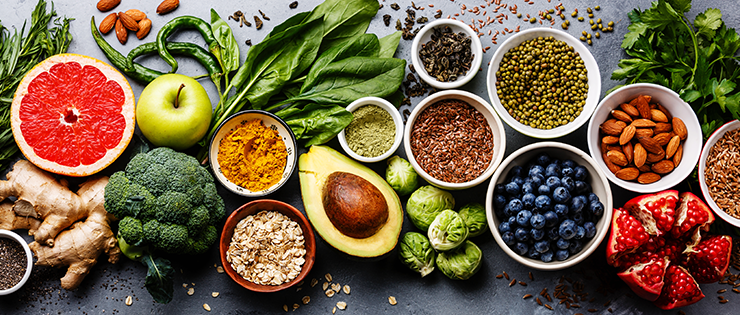
If I had an apple for every time someone asked me if apples are actually healthy I would be baking in the Maldives right now. After many years in the industry, I have racked my brain to try to identify here some of the most popular questions people ask when they visit a nutritionist!
What’s the secret?
High fat? Vegan? Fasting? Sorry to tell you this but there isn’t a one size fits all when it comes to nutrition. We are all beautifully unique and what works for some may not work for others. However with a clear health goal, a sprinkling of guidance and a glass full of courage you can achieve anything you desire for an optimal functioning body and brain. A simple tip for when you find yourself feeling overwhelmed with information is to strip it all back and just keep it simple – keeping a regular food diary also works wonders.
What foods are always in a nutritionist’s shopping trolley?
Now just because us nutritionists seem to live a life of chia seeds and spirulina doesn’t mean we are immune to the everyday struggles of eating a healthy diet, but here are some of my own shopping trolley hacks that create a great foundation for healthy meal choices. For me good quality extra virgin olive oil is a must as are almond milk, free-range eggs, raw nuts, tinned beans, dried lentils, apple cider vinegar, tamari sauce, almond butter, Greek yoghurt, seasonal fresh vegetables (e.g. sweet potato, dark leafy greens & green beans), seasonal fresh fruit (bananas, berries & lemons), quinoa and oats.
What foods should I never buy?
The trick with supermarket shopping is to spend most of your time at the supermarket in the first two aisles – or depending on the way your local store is laid out - the fresh food section. As you work your way through the internal aisles of the supermarket, you should spend less and less time as this is where you tend to find the more processed foods.
In a nutshell, go hard at the start and taper down as you start seeing the packet and freezer section. Try to direct your eyeballs away from foods with that have been highly processed or refined and as a result have low nutritional values- products such as energy drinks, sodas, lollies, table salt, margarine, deep fried foods, processed meats, sugary cereal and reduced fat foods.
Is organic food healthier than non-organic?
Sometimes, but not always. If you follow the ‘dirty dozen’ rule which is updated every year with the best organic fruits and vegetables to invest in – you’ll have all the info you need to better assess which ones to spend your $$ on and which ones you can comfortably purchase as non-organic. Another hack is to just look at the skin – if the skin is thick, you can more comfortably pass on the organic, however if the skin is thin or non-existent; best to invest in the organic option.
Do supplements work?
If food is Batman, think of supplements as the sidekick Robin. We can’t rely on that guy to fully take over, but he can sometimes help us out – that’s how we should view supplements. You may have also heard of the 80:20 rule, so 80% of the time nutritionists want you to eat as healthy as possible, 20% of you can moderately indulge in what you desire. Well, you can use the same ratio for supplementation. 80% of your nutrients should come from food, no more than 20% should ever come from supplements and of course, we endeavour for 100% of your nutrients to come from foods in an ideal scenario.